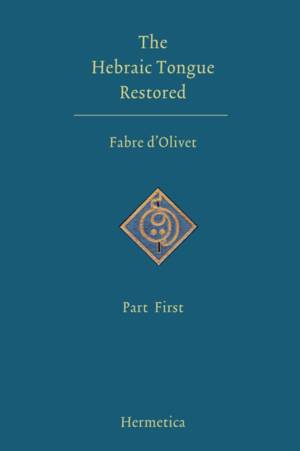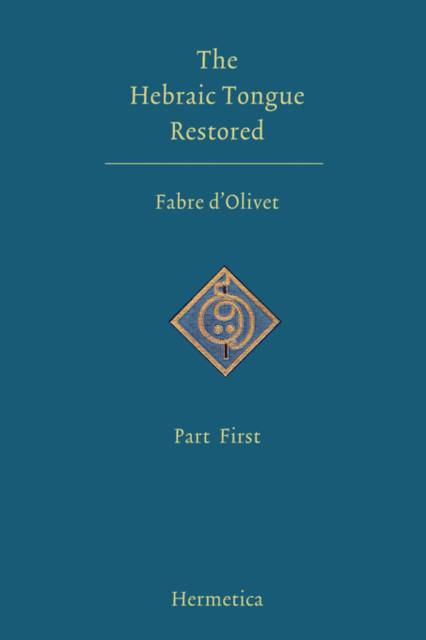
- Retrait gratuit dans votre magasin Club
- 7.000.000 titres dans notre catalogue
- Payer en toute sécurité
- Toujours un magasin près de chez vous
- Retrait gratuit dans votre magasin Club
- 7.000.0000 titres dans notre catalogue
- Payer en toute sécurité
- Toujours un magasin près de chez vous
21,95 €
+ 43 points
Format
Description
Antoine Fabre d'Olivet (December 8, 1767-March 25, 1825) was a French author, poet, and composer whose biblical and philosophical hermeneutics in?uenced many occultists, such as Eliphas Lévi and Gerard Encausse (Papus), and René Guénon. D'Olivet spent his life pursuing the esoteric wisdom concealed in the Hebrew scriptures, Greek philosophy, and the symbolism of many ancient cultures as far back as ancient India, Persia, and Egypt. His writings are considered classics of the Hermetic tradition. His best known works today are his research on the Hebrew language, the present volume (The Hebraic Tongue Restored), his translation and interpretation of the writings of Pythagoras (The Golden Verses of Pythagoras), and his writings on the sacred art of music. In addition to the above works, Hermetica has published in consistent facsimile format for its Collected Works of Fabre d'Olivet series Cain and The Healing of Rodolphe Grivel, as well as Hermeneutic Interpretation of the Origin of the Social State of Man and the Destiny of the Adamic Race. D'Olivet's mastery of many ancient languages and their literatures enabled him to write (in the time of Napoleon) this extraordinary text which remains a landmark investigation of the deeper esoteric undercurrents at work in the history of culture. In this prodigious work, which first appeared in 1815, Fabre d'Olivet goes back to the origin of speech and rebuilds upon a basis of truly colossal learning the edifice of primitive and hieroglyphic Hebrew, bringing back the Hebraic tongue to its constitutive principles by deriving it wholly from the sign, which he considers the symbolic and living image of the generative ideas of language. Fabre d'Olivet had found that what is called today the Hebraic tongue is only a colorless simulation of the tongue of the mysteries, and that in finding again this mysterious language one would hold at last the key of all cosmogonies. Drawing upon the resources acquired by his exhaustive studies of Chinese, Sanskrit, Samaritan, Chaldaic, Syriac, Arabic, and Greek, he restored the tongue of the mysteries. Part First: Introductory Dissertation, Hebraic Grammar, and Series of Hebraic Roots. Part Second: Preliminary Discourse and Cosmogony of Moses.
Spécifications
Parties prenantes
- Auteur(s) :
- Traducteur(s):
- Editeur:
Contenu
- Nombre de pages :
- 488
- Langue:
- Anglais
Caractéristiques
- EAN:
- 9781597312042
- Date de parution :
- 15-11-07
- Format:
- Livre broché
- Format numérique:
- Trade paperback (VS)
- Dimensions :
- 158 mm x 230 mm
- Poids :
- 689 g

Les avis
Nous publions uniquement les avis qui respectent les conditions requises. Consultez nos conditions pour les avis.






